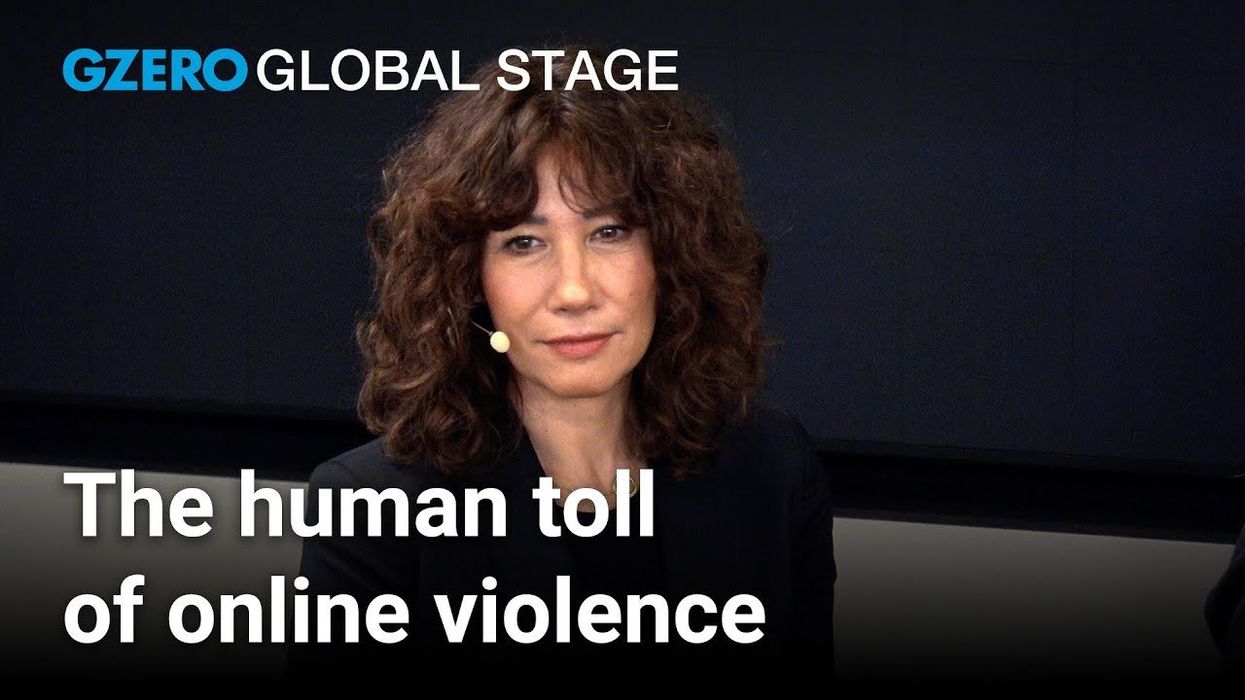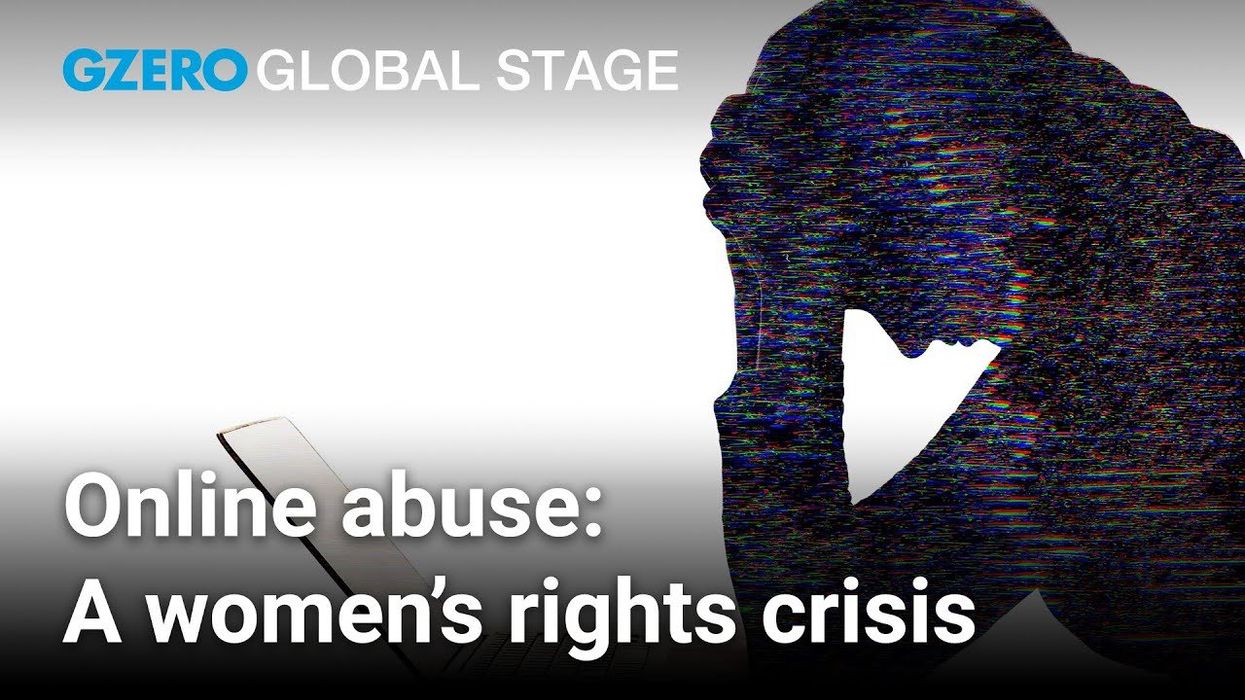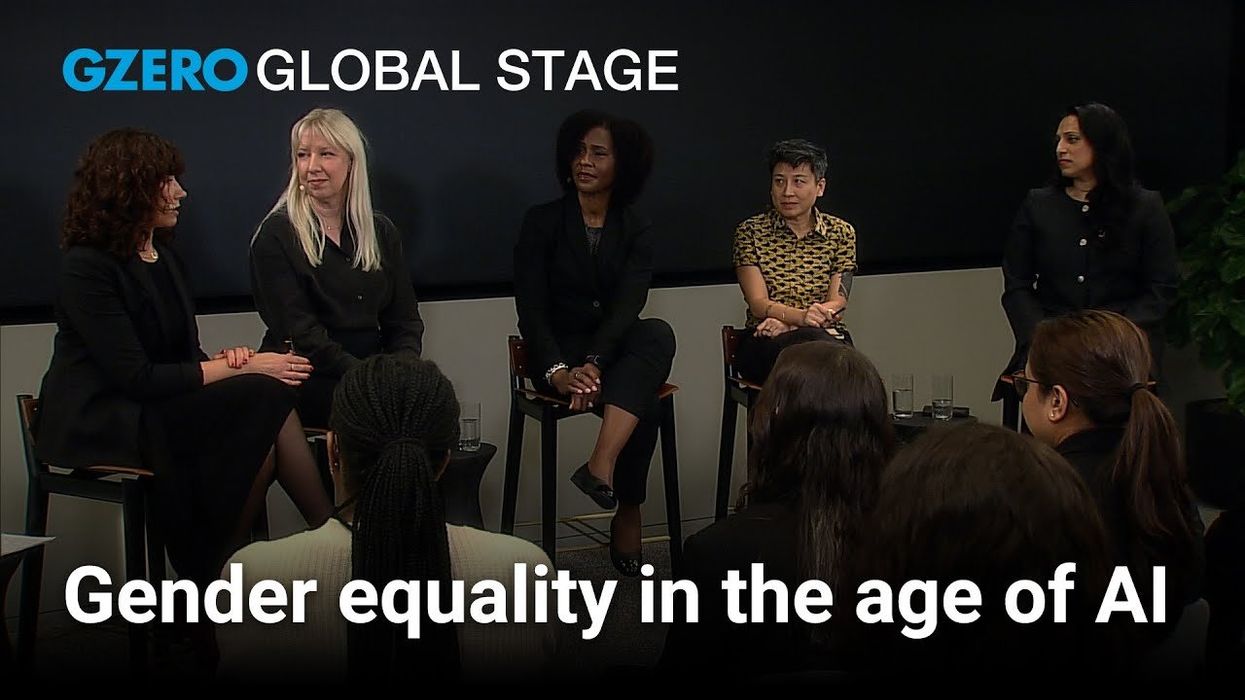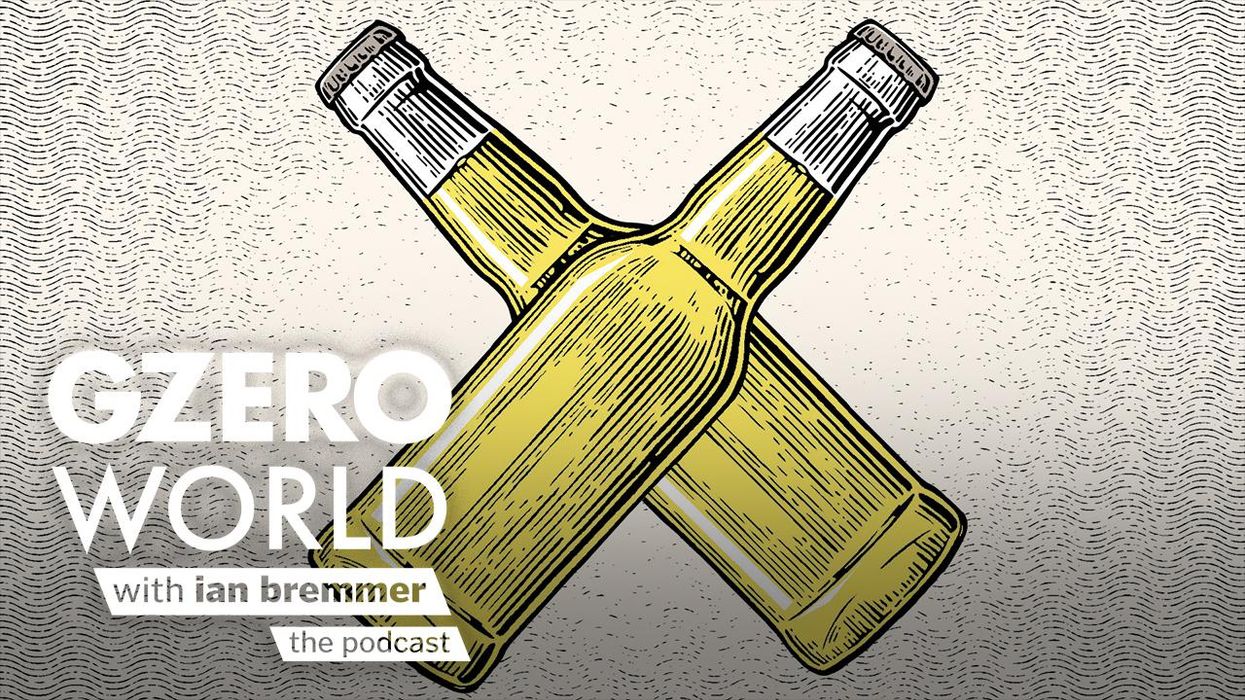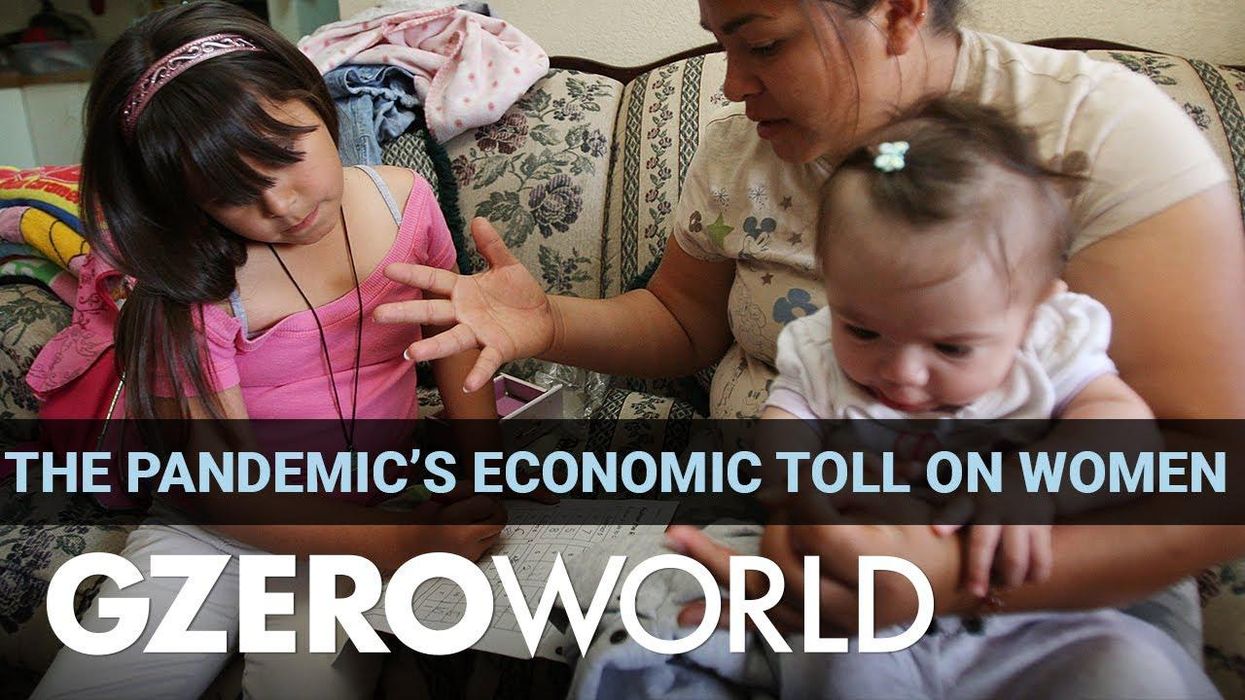Commission on the Status of Women
Online violence means real-world danger for women in politics like EU's Lucia Nicholsonová
Lucia Nicholsonová, former Slovak National Assembly vice president and current member of European Parliament for Slovakia, recounts her harrowing personal experiences with disinformation campaigns and gendered hate speech online during a GZERO Global Stage discussion on gender equality in the age of AI.
Mar 21, 2024
